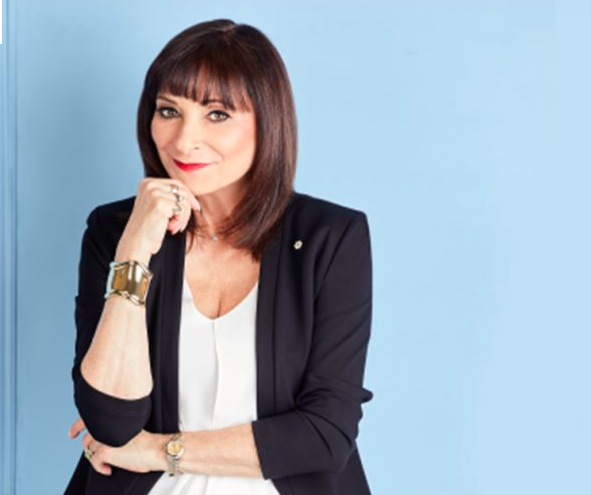To Jeanne Beker, a Healthy Brain Means a Healthy Life
by Media Planet:
While Jeanne Beker may be best known for her work in fashion journalism and television, she’s also an Honourary Board Member of the Women’s Brain Health Initiative (WBHI), a Canadian and U.S. foundation that works to combat brain-aging diseases and protect women’s brain health. Mediaplanet spoke with her about brain health awareness.
How did you get involved with the WBHI?
I’ve been an Honourary Board Member of the WBHI since its inception in 2012. Because 70% of people who suffer from Alzheimer’s disease are women, and so many disorders associated with brain aging inexplicably affect women, I was passionate about learning more, and about trying to raise awareness.I’ve had the honour of hosting various events for WBHI and conducted fireside chats with the likes of Marcia Gaye Harden, who wrote a wonderful book about her mother’s battle with Alzheimer’s, and Kim Campbell, who cared for her husband, the late country star Glen Campbell, throughout his own battle with the disease. Hearing these poignant stories was both shocking and inspiring — a wake-up call about how much works needs to be done in the field of brain research.
Why is it important for you to raise awareness for brain-aging diseases?
My late mother suffered from Parkinson’s disease and Parkinson’s-related dementia, and watching her decline was heartbreaking. I found it incomprehensible that such an intellectually brilliant, wise, and witty person could succumb to the ravages of this cruel disease. We’re living longer these days, which is great in some ways but frightening in others. There’s just so much about the brain that we don’t understand. Research has been lacking in many areas, and it’s imperative that more be done.
What are you doing to optimize and maintain your own brain health?
It all starts with maintaining a healthy body as much as possible — eating right, exercising, and taking time to de-stress and smell the roses. Our mental health may be our most precious asset, and a work–life balance is imperative.Besides focussing on my work, I read, I write, I paint, I bake, I practise playing piano whenever I get a chance, and I even try to learn new crafting skills — everything from pottery and rug-hooking to needle-felting and shibori dying. And during the recent COVID-19 quarantine, I even found the time to work on a number of jigsaw puzzles, which I found to be rather meditative.I think engaging socially is crucially important as well, especially for older people who often have to spend so much time alone. The art of conversation is a precious gift we should all participate in as much as possible. Human connections are invaluable.
What message do you have for those who have been affected by, or have a loved one that’s been affected by, a neurological condition?
Compassion counts for so much — we have to be gentle with each other and gentle on ourselves. Patience, positivity, and faith are paramount. But it’s also important to share and to communicate. Talk about your pain. Try to understand the nature of your, or your loved one’s, condition. Try to read up on all the latest news and developments. And make others aware of what it is you’re going through. We can’t afford to be islands. Life is all about human connection and shining our lights in all those dark corners is good for us all.

